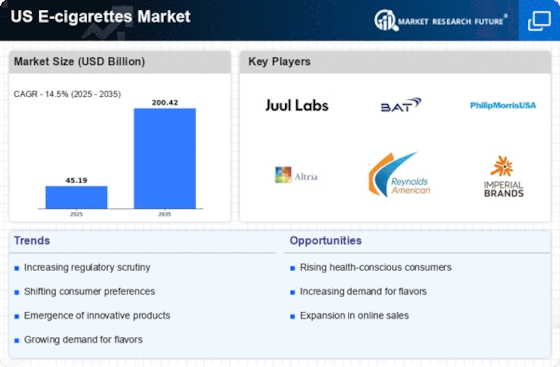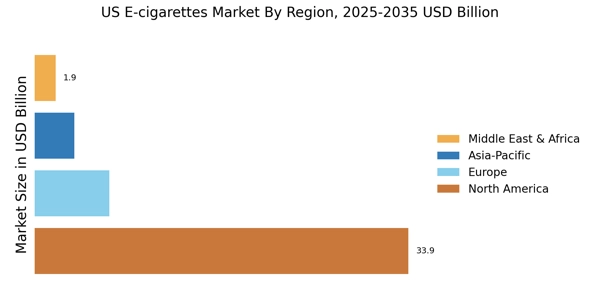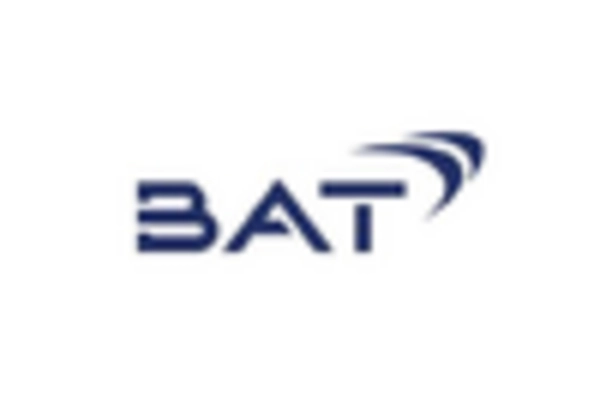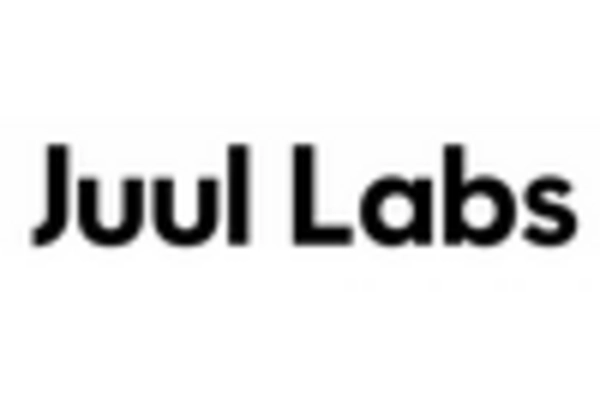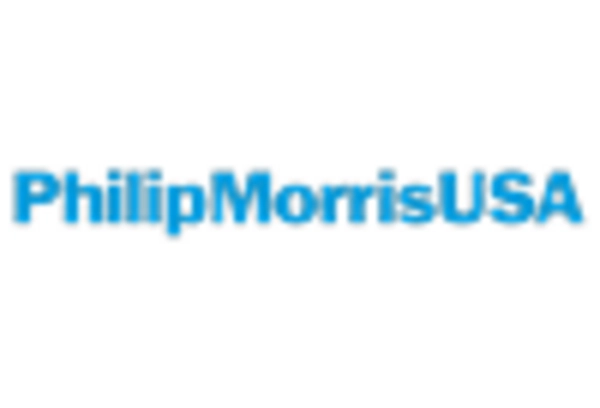Regulatory Environment
The regulatory environment surrounding the US E-cigarettes Market is complex and continually evolving. Recent legislative measures aimed at curbing youth access to vaping products have prompted manufacturers to adapt their marketing strategies and product offerings. The Food and Drug Administration (FDA) has implemented stricter guidelines regarding the sale and advertising of e-cigarettes, which may impact market dynamics. While these regulations aim to protect public health, they also create challenges for industry players. Companies must navigate compliance while striving to maintain market share. This regulatory landscape could lead to consolidation within the US E-cigarettes Market, as smaller firms may struggle to meet compliance requirements, potentially reshaping the competitive landscape.
Health Awareness Campaigns
Health awareness campaigns significantly influence the US E-cigarettes Market by educating consumers about the risks associated with smoking and the potential benefits of switching to e-cigarettes. Public health organizations and advocacy groups are increasingly promoting vaping as a harm reduction strategy. Data shows that states with active health campaigns report higher rates of e-cigarette adoption among smokers looking to quit. These campaigns not only raise awareness but also foster a more informed consumer base that is likely to seek out safer alternatives. As health awareness continues to grow, the US E-cigarettes Market may see an uptick in demand, as more individuals consider e-cigarettes as a viable option for reducing smoking-related health risks.
Technological Advancements
Technological advancements play a crucial role in shaping the US E-cigarettes Market. Innovations in device design, battery life, and e-liquid formulation have significantly enhanced user experience. For instance, the introduction of pod systems and advanced vaporization techniques has made vaping more accessible and appealing. Market data suggests that the segment of advanced e-cigarette devices is projected to grow at a compound annual growth rate of 15% over the next five years. These advancements not only improve product performance but also address consumer preferences for convenience and portability. As technology continues to evolve, the US E-cigarettes Market is expected to witness further growth, driven by the demand for high-quality, user-friendly products.
Rising Popularity of Vaping
The US E-cigarettes Market experiences a notable increase in popularity among consumers, particularly among younger demographics. This trend is driven by the perception of e-cigarettes as a less harmful alternative to traditional smoking. Data indicates that approximately 10.5 million adults in the United States currently use e-cigarettes, reflecting a growing acceptance of vaping culture. The appeal of diverse flavors and customizable devices further enhances consumer interest, leading to a shift in smoking habits. As more individuals seek alternatives to combustible tobacco products, the US E-cigarettes Market is likely to expand, attracting new users and retaining existing ones. This rising popularity may also prompt manufacturers to innovate and diversify their product offerings, thereby fostering a competitive landscape that benefits consumers.
Changing Consumer Preferences
Changing consumer preferences are reshaping the landscape of the US E-cigarettes Market. A growing number of individuals are opting for e-cigarettes as a means to reduce or quit traditional smoking. This shift is influenced by increased awareness of health risks associated with combustible tobacco products. Recent surveys indicate that nearly 60% of e-cigarette users believe that vaping is a healthier alternative to smoking. Additionally, the rise of social media and online communities has facilitated the sharing of experiences and information, further encouraging this trend. As consumer preferences continue to evolve, the US E-cigarettes Market is likely to adapt, with manufacturers focusing on products that align with health-conscious choices and lifestyle changes.


